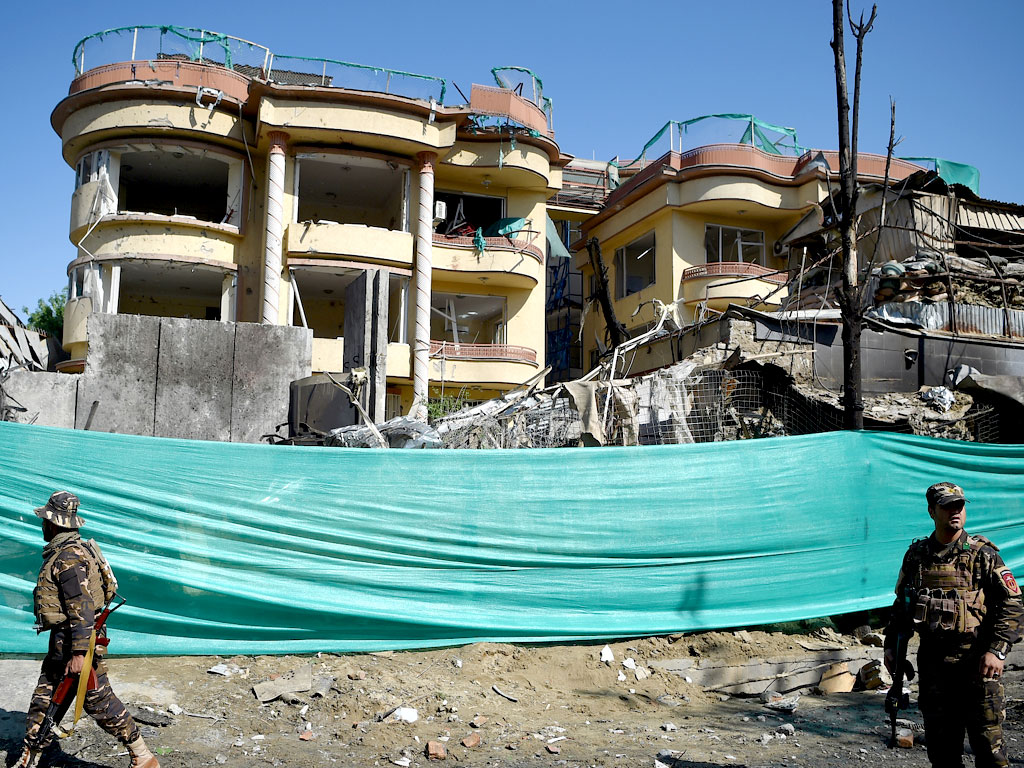
If there was any confusion as to what the Afghan Taliban really want the two incidents - one in Kabul and the other in Doha - during the week should help dispel it. In Doha there was "some progress" made in the sixth round of peace talks with the Americans, tweeted Suhail Shaheen, the Taliban's spokesperson. "In general, this round was positive and constructive. Both sides listened to each other with care and patience," he added. There was no comment from the US side. And rightly so; only a day before the Taliban had launched a murderous assault on the non-profit Counterpart International in Kabul. Taliban spokesman Zabiullah Mujahid claimed responsibility for the attack, arguing the NGO was targeted because it promoted the "inter-mixing" of men and women. So, if anyone thought that Taliban movement no more carries encumbrance of Mulla Omar's emirate he should think again. The Taliban of today don't seem to be very different from what they were yesterday - if a woman was stoned to death then, she is liable to be killed now because she works with men under the same roof. That the NGO has been working to strengthen civil society and promote social equality for several decades is a fact; this is its only sin. By attacking the Counterpart International, the Taliban said not the people of Afghanistan but its territory is what they want. There they are sadly mistaken; they may kill many more innocent people but cannot conquer the hearts and minds of Afghans. And what kind of emirate the Taliban want - an emirate where killing is rampant even during the holy month of Ramazan?
Plausibly, it is Trump-conceived early troop withdrawal that encourages Taliban to raise the ante of bloodshed, hoping it adds to their clout at the negotiating table. It may be so, as seems to be the case at Doha. But the Taliban leadership must also know that it is the Afghan blood they shed so mercilessly. As for the Americans they would be leaving Afghanistan anytime soon - and not much perturbed as to what kind of Afghanistan they would leave behind. But it is for Taliban leadership to understand that even when they may be occupying half of Afghanistan they are only a group. And also, the kind of patronage Mulla Omar's emirate received, both for its emergence and recognition, may not be available now. The ultimate source of their strength is none but Afghans, and for them peace is more important than any other consideration. As to what this silent majority of Afghans wants, the Taliban leadership would be well-advised to revisit the call made by the recently held Loya Jirga. And also, the Taliban need to be taken differently, both in words and actions, from the so-called Islamic State.
What the Taliban struck now was neither a military post nor a government office. It had suicide-bombed the main office of a non-profit organisation, which is in the field since 1965 and has served the country by supporting the weak and marginalized groups across Afghanistan. Taliban must not lose sight of the fact that a world around today's Taliban is vastly different, both qualitatively and quantitatively, from the one in the 1990s or prior to 9/11. To remain relevant, the Taliban are required to taste sweet and sour of the present-day realities. That they would be the lone rulers of Afghanistan is very much in doubt. They got to join others and collectively work to bring peace and stability to their people. Incessant fighting on their part has won them some territory. But to be acceptable to the people of Afghanistan they have to give up on this addiction. Joining hands with other stakeholders by observing countrywide ceasefire will be the first step.
